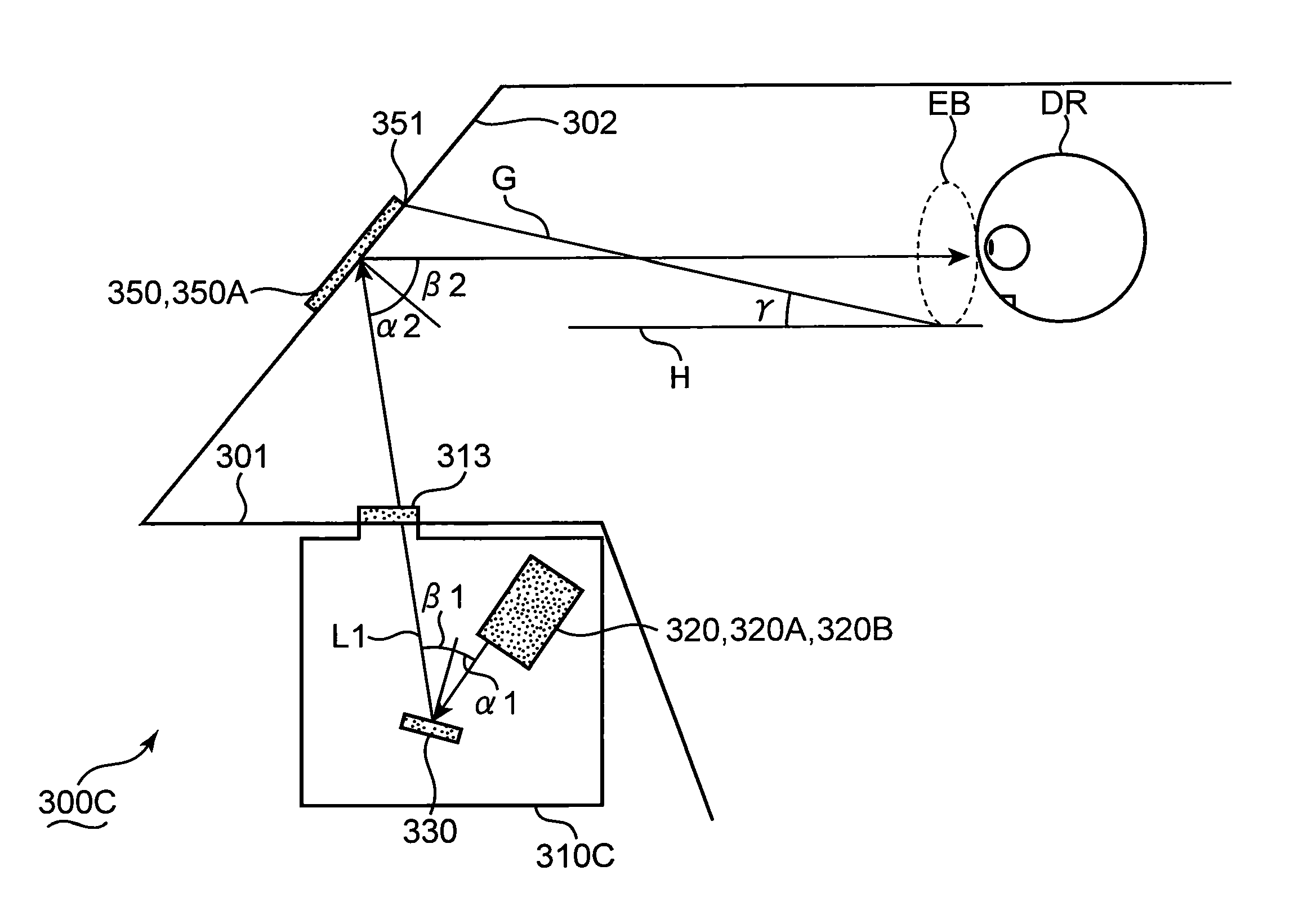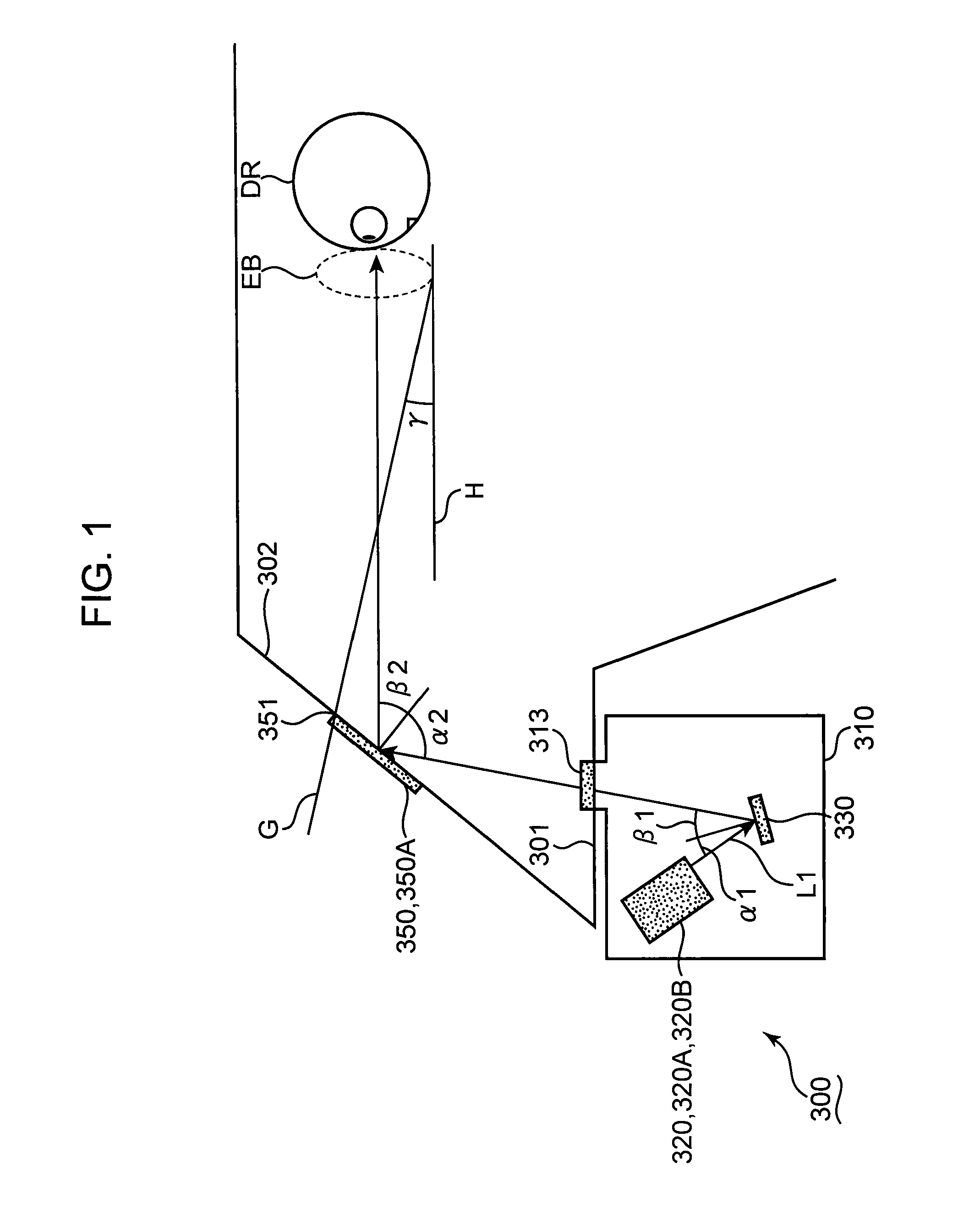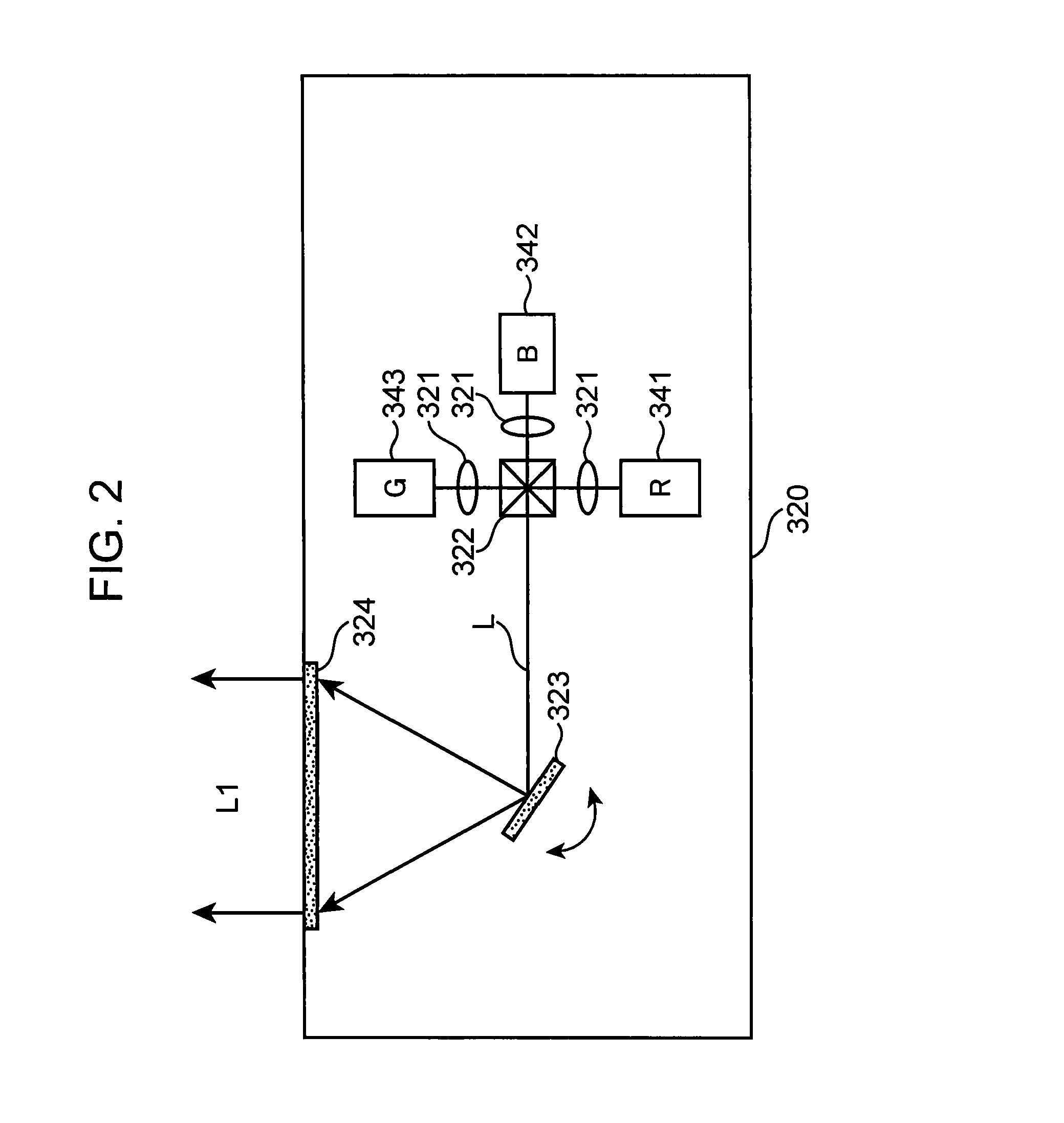Transmissive display device
a display device and display screen technology, applied in the direction of static indicating devices, lighting and heating apparatus, instruments, etc., can solve the problems of surface reflection, image blurring (color aberration), and the largely reduced image resolution of the combiner, and achieve the effect of correcting the image blurring
- Summary
- Abstract
- Description
- Claims
- Application Information
AI Technical Summary
Benefits of technology
Problems solved by technology
Method used
Image
Examples
first embodiment
[0084]FIG. 1 is a schematic view of an exemplary HUD (head-up display) according to the first embodiment. An incident angle on a hologram combiner of the HUD according to the present embodiment is designed to be larger than its diffraction angle, in order to resolve the surface reflection problem and display high quality images.
[0085]The HUD 300 shown in FIG. 1 comprises an HUD optical unit 310 which is situated inside a dashboard of a vehicle 301. The HUD optical unit 310 stores a display part 320 and a correcting element 330. An opening 313 is formed on the HUD optical unit 310. The display part 320 creates display light L1 which is emitted through the opening 313. In the present embodiment, the HUD optical unit 310 is exemplified as the display unit.
[0086]The display part 320 generates and emits the display light L1 to display an image, which contains driving information (a speedometer and / or map information), to a driver DR. In the present embodiment, the display part 320 two-di...
second embodiment
[0162]FIG. 12 shows a schematic view of an HUD which is exemplified as the transmissive display device according to the second embodiment. The same components as the first embodiment are labeled with the same reference numerals. Differences from the first embodiment are described with reference to FIGS. 1 and 12. Descriptions about the same components as the first embodiment are omitted here. The descriptions about the first embodiment may be suitably incorporated into components which are not described below.
[0163]The incident angle at the hologram combiner of the HUD according to the second embodiment is set to be smaller than the diffraction angle of the hologram combiner, unlike the first embodiment. Consequently, the surface reflection problem is resolved to improve quality of an image which is presented to the driver.
[0164]The HUD 300C comprises the hologram combiner 350 or 350A, which is situated on the front windscreen 302 of the vehicle 301, and the HUD optical unit 310C, w...
third embodiment
[0179]FIG. 15 shows a schematic view of an HUD which is exemplified as a transmissive display device according to the third embodiment. The same components as the second embodiment are labeled with the same reference numerals. Differences from the second embodiment are described with reference to FIG. 15. Descriptions about the components as the first and / or second embodiments are omitted here. The descriptions in the context of the first and / or second embodiments may be suitably incorporated to components which are not described below.
[0180]The incident angle on the hologram combiner of the HUD according to the third embodiment is set to be smaller than the diffraction angle of the hologram combiner, like the second embodiment. Consequently, the surface reflection problem is resolved to improve quality of the image which is presented to the driver.
[0181]The HUD 300D comprises a hologram combiner 350D which is situated on the front windscreen 302D of the vehicle 301, in addition to ...
PUM
 Login to View More
Login to View More Abstract
Description
Claims
Application Information
 Login to View More
Login to View More - R&D
- Intellectual Property
- Life Sciences
- Materials
- Tech Scout
- Unparalleled Data Quality
- Higher Quality Content
- 60% Fewer Hallucinations
Browse by: Latest US Patents, China's latest patents, Technical Efficacy Thesaurus, Application Domain, Technology Topic, Popular Technical Reports.
© 2025 PatSnap. All rights reserved.Legal|Privacy policy|Modern Slavery Act Transparency Statement|Sitemap|About US| Contact US: help@patsnap.com



